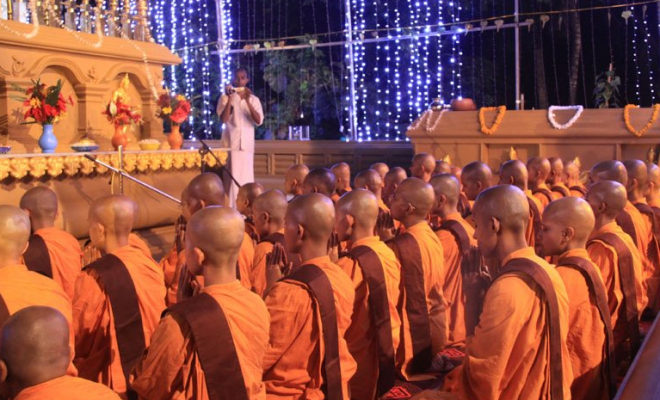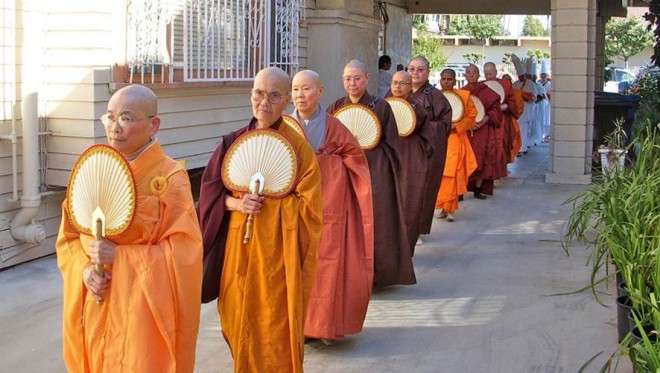How the ‘Bhikkhunī’ Order came about
How the ‘Bhikkhunī’ Order came about
Today is the full-moon day for the month of ‘Potthapāda’ (or ‘Binara’ [ බිනර ] in Sinhalese). According to Sri Lankan Theravada tradition, this day commemorates the occasion where the Buddha allowed the ordination of ‘bhikkhunīs’ (women renunciates), and thus is a very important anniversary.
After the passing away of the Buddha’s father King Suddhodana, the elderly Queen Mahāpajāpatī Gotamī (the king’s widow) requested the Buddha to ordain her as a ‘nun’. The Buddha refused her entreaty out of concern for her physical well-being, thinking that she would not be accustomed to the extremely tough life of a homeless ascetic. Furthermore, the social conditions at that time did not permit women such freedom to leave the ‘security’ of their homes and families.
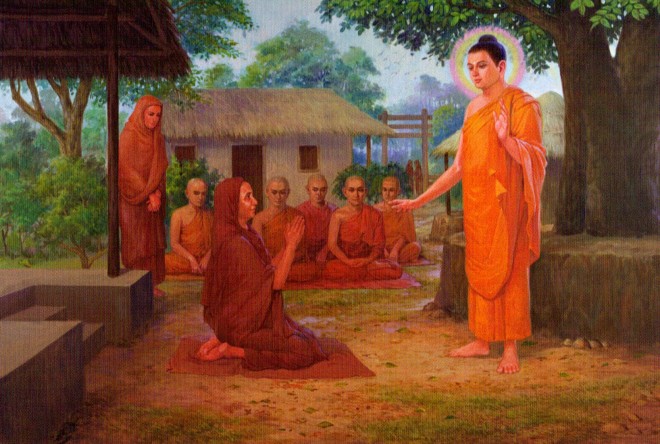
The Buddha initially rejected the elderly Mahāpajāpatī Gotamī’s request to be ordained as a ‘nun’, out of concern for her physical well-being.
Undaunted by the refusal, Mahāpajāpatī Gotamī and many of her female followers donned coarse robes and walked barefooted for weeks to meet the Buddha to prove their serious intent. The Buddha saw how determined they were, and was convinced that they, having tracked and lived like mendicants for weeks, were ready to undertake the ‘forest life’. After the skillful persuasion of his cousin Venerable Ananda who took pity on the former queen and her attendants, the Buddha granted permission to the ladies to be ordained as the first ever ‘bhikkhunīs’.
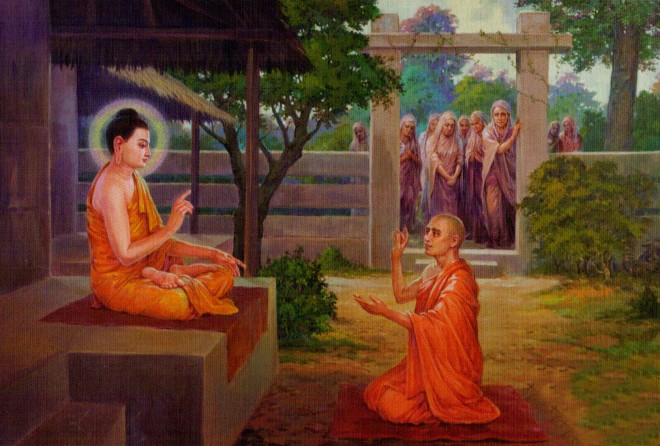
The ladies’ persistence, coupled with Ven. Ananda’s skillful persuasion, finally convinced the Buddha the aptness of forming the ‘Bhikkhunī’ Order for the spiritual advancement of women.
It was the first time in human history that a proper female monastic order was established. And in a period when generally the status of women was akin to chattels, it was indeed a very audacious and revolutionary advancement. The Buddhist establishment then formed its present structure – the “Four-fold Assembly” of ‘bhikkhus’ (monks), ‘bhikkhunīs’ (nuns), ‘upasaka’ (laymen) and ‘upasikā’ (lay women).
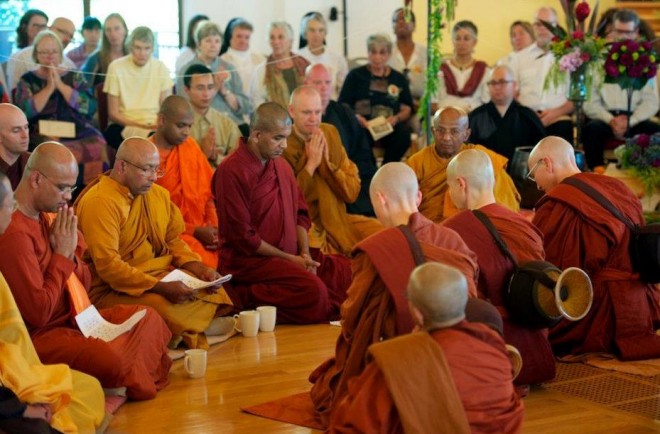
The “two-fold ordination” of ‘Bhikkhunīs’ follows age-old customs established since the Buddha’s time.
Thus on this particular full-moon observance day, let us pay tribute to the first ‘Bhikkhunī’ Mahāpajāpatī Gotamī Therī for her courage and pioneering efforts, and to generations of saintly women renunciates, teachers and practitioners who contributed immensely to the preservation and propagation of the Buddha’s true teachings till the present day. Namo Sanghaya!


